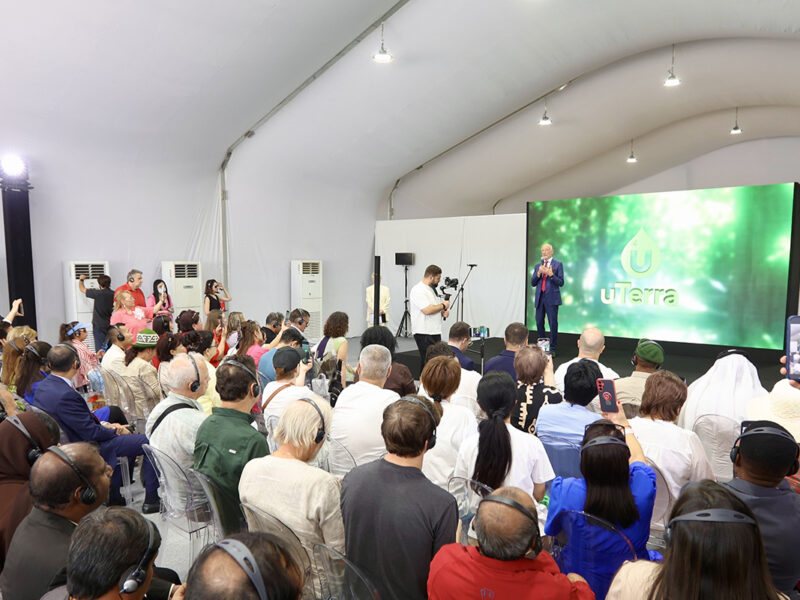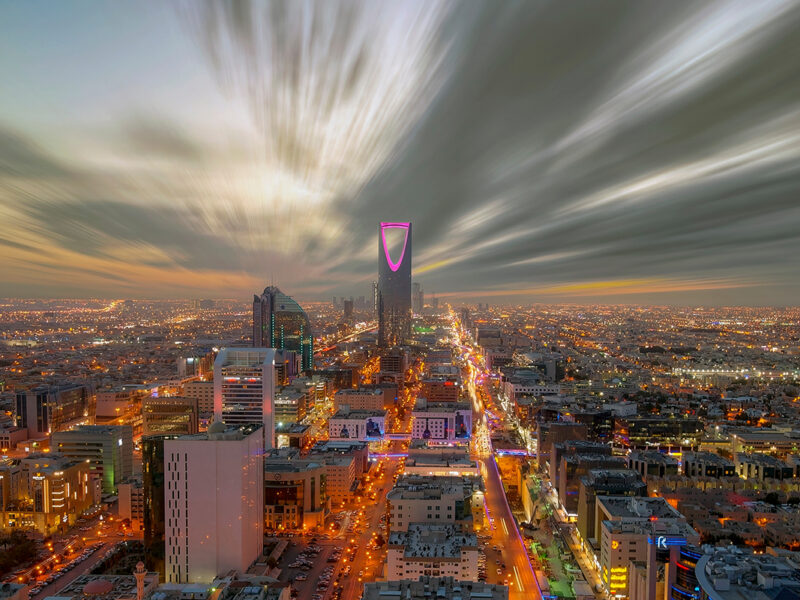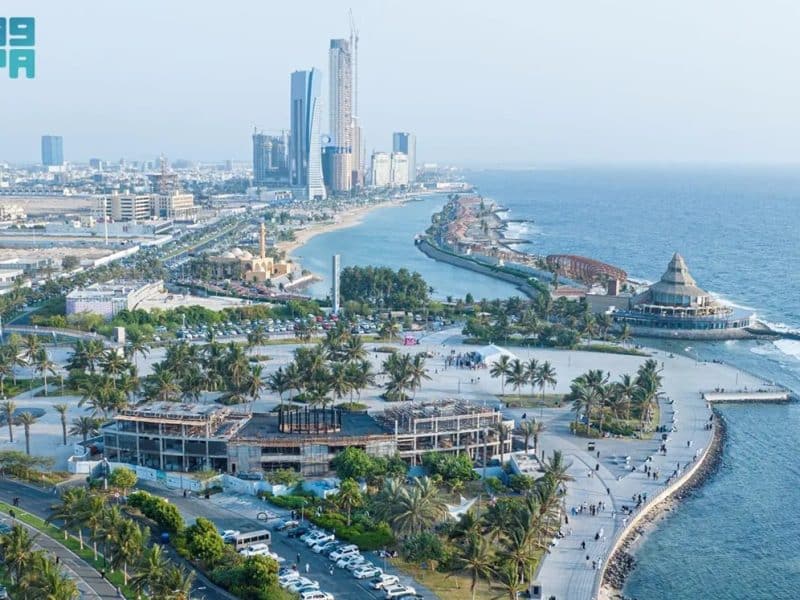Meet Nayla Al Khaja, a gutsy emirati woman, who has moved from making amateur shorts to signing a major film production deal with an international firm.
On March 7 this year, Nayla Al Khaja turned 29. A day later, Al Khaja, known as the UAE’s first independent female filmmaker got what she calls ‘the best birthday present of all’ when she was awarded The Middle East Business Woman and Leaders Achievement award for the year 2007.
I need to produce at least two or three films and then, I can be confident when I direct because then nobody can rip me off – Nayla Al Khaja/D-Seven Motion Pictures.
In June, Al Khaja justified that title once again when her company, D-Seven Motion Pictures, signed an agreement with Italy’s Istar Productions to jointly develop and produce three films for global commercial distribution.
This is the first time companies from the two countries have entered such an agreement and the deal is likely to boost the UAE’s fledgling film industry and develop local technical and artistic talent.
“We are working together to raise finance for our first film, Rumi, which is about the life of a Sufi saint. This will be a US $18 million film that will be shot on 35 mm and have an international cast and crew. We have got three-time Academy Award winner and cinematographer, Vittorio Storaro on board and Muzaffar Ali will direct the film. We intend to complete this project in a couple of years. Otherwise, projects tend to lose steam,” Al Khaja says.
Although Al Khaja has in the past directed a documentary, Unveiling Dubai, one of her first amateur attempts, and her more recent short, Arabana, Al Khaja will be involved more in film production now than in direction, she confirms. “I have always enjoyed producing way more because I love the whole process of seeing a film come to realisation from storyboard to screen and packaging it. I enjoy choosing the directors and the cast and like to be responsible for marketing the film. I have always wanted to do this on a big scale, and this is my opportunity to work with industry professionals who have done this in the past.”
Al Khaja does not eliminate the possibility of directing in the future “but I think it’s too early for me to start doing that now,” she says.
“I need to produce at least two or three films and then, I can be confident when I direct because then nobody can rip me off. I would know how the whole financial process works,” she states.
Al Khaja also confirms that she will give UAE nationals the opportunity to work on the set of the film. “This is a priority for us. I already have four people who have volunteered to go on set while we are filming because this will be a great learning experience. I myself have had the opportunity to do this on a Bruce Willis film that was shot in Canada because I was in that area. I thought to myself: ‘Even if I am going to deliver lobster everyday, I don’t care. I am going to be on that set because I’ll have a glimpse of what’s going on.’ It gives people an understanding of how much work and dedication goes into making such big budget films.”
However, the Emirati national feels that the UAE needs to go a step further to encourage filmmaking in the region. “The main problem is that this industry is very new here, which means you need a lot of time to get access to the right people and the right equipment. In the meantime, you need to give people incentives to come and operate out of here. That’s something the UAE government needs to look into. For instance, we need to sign some sort of a co-production treaty between European countries and Dubai, because then they can get some of their money back in terms of taxes and so on. Until that happens, it’s going to be a big struggle.”
In the meantime, D-Seven’s bread and butter comes from its PR, advertising and production work. Al Khaja’s tiny team, for instance, managed the entire production for one of Men’s Vogue’s covers, which featured Rodger Federer. “That was a huge project for us with Annie Liebowitz being the photographer for the shoot. Given the equipment and the kind of services we had to provide for it, this was really big. It was a prestigious project and a great learning experience for us,” she says.
However, Al Khaja also confirms that she won’t be doing this forever. She dreams of having her own distribution company some day. “I intend to be involved completely in filmmaking someday and make money out of it. We are going to push this thing even if it takes us 20 years to get it right. We are very lucky to be pioneering the cinema movement in this country. That’s why it is crucial that we do this – to make films commercially viable and yet, also ensure that it is culturally right.”
Arabana, Nayla Al Khaja’s six-minute short on child abuse was made on 35 mm and received the support of several big names in the film industry.
The film was shot with an Arri S 535 camera. Offline editing was done at D-Seven and then it was further edited free-of-charge at Condor Post Production in Dubai. Arri Germany transferred the film back onto 35mm and did the surround sound for it. This part of the project, which cost $16,500, was sponsored by Arri.
“If we had to pay for this film ourselves, it would have cost us nothing less than US $100,000. That’s not bad for a six-minute film shot on 35 mm given that people make 30-second TVCs for thrice that amount,” comments Al Khaja.
Still, she maintains that the film was low-budget because it was shot at one location with one actress. “It was just one scene but when it was previewed at the Dubai International Film Festival, and recently at the Dubai Summer Surprises, it left our viewers reasonably disturbed. That’s a good sign,” she says.








